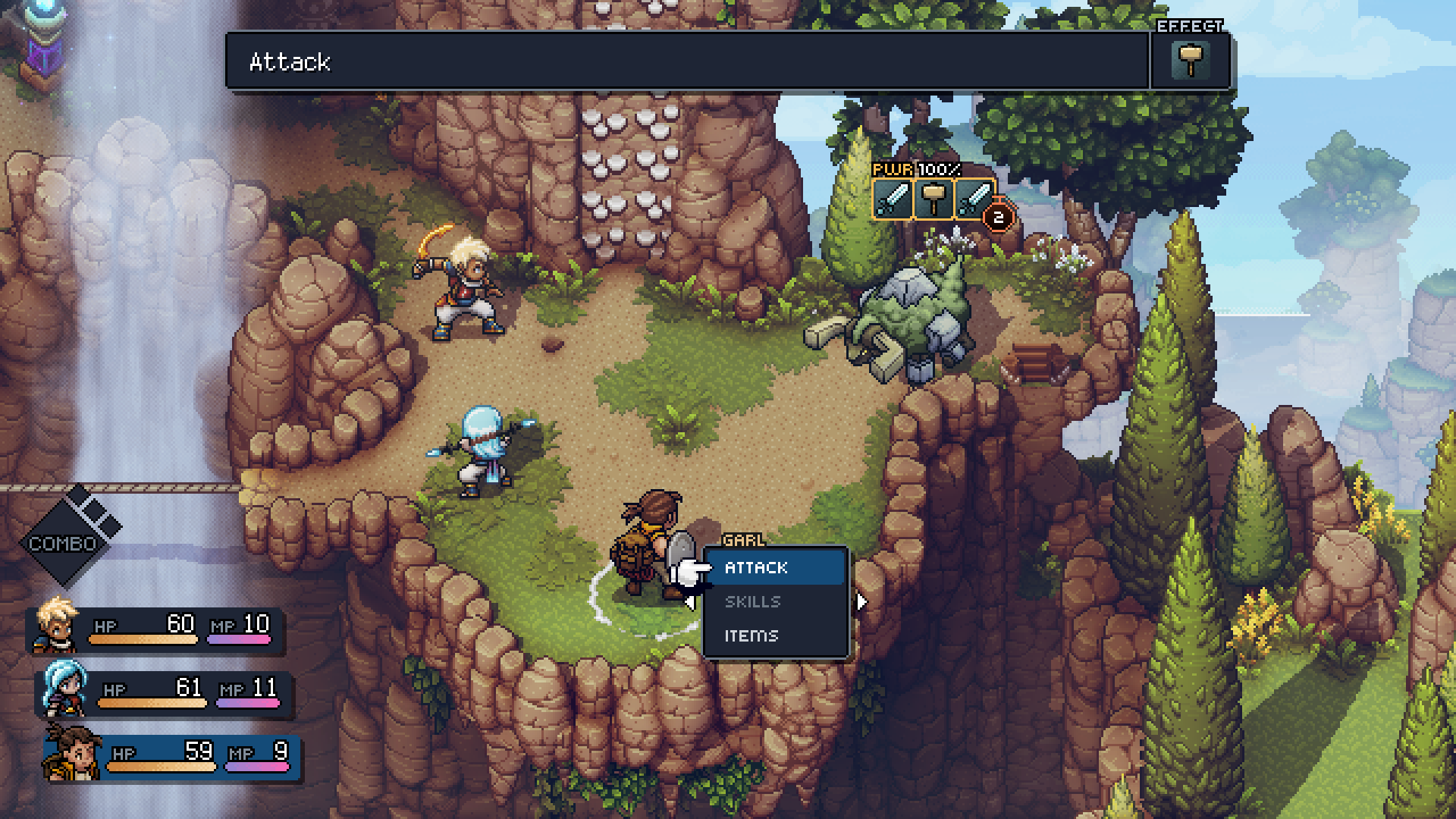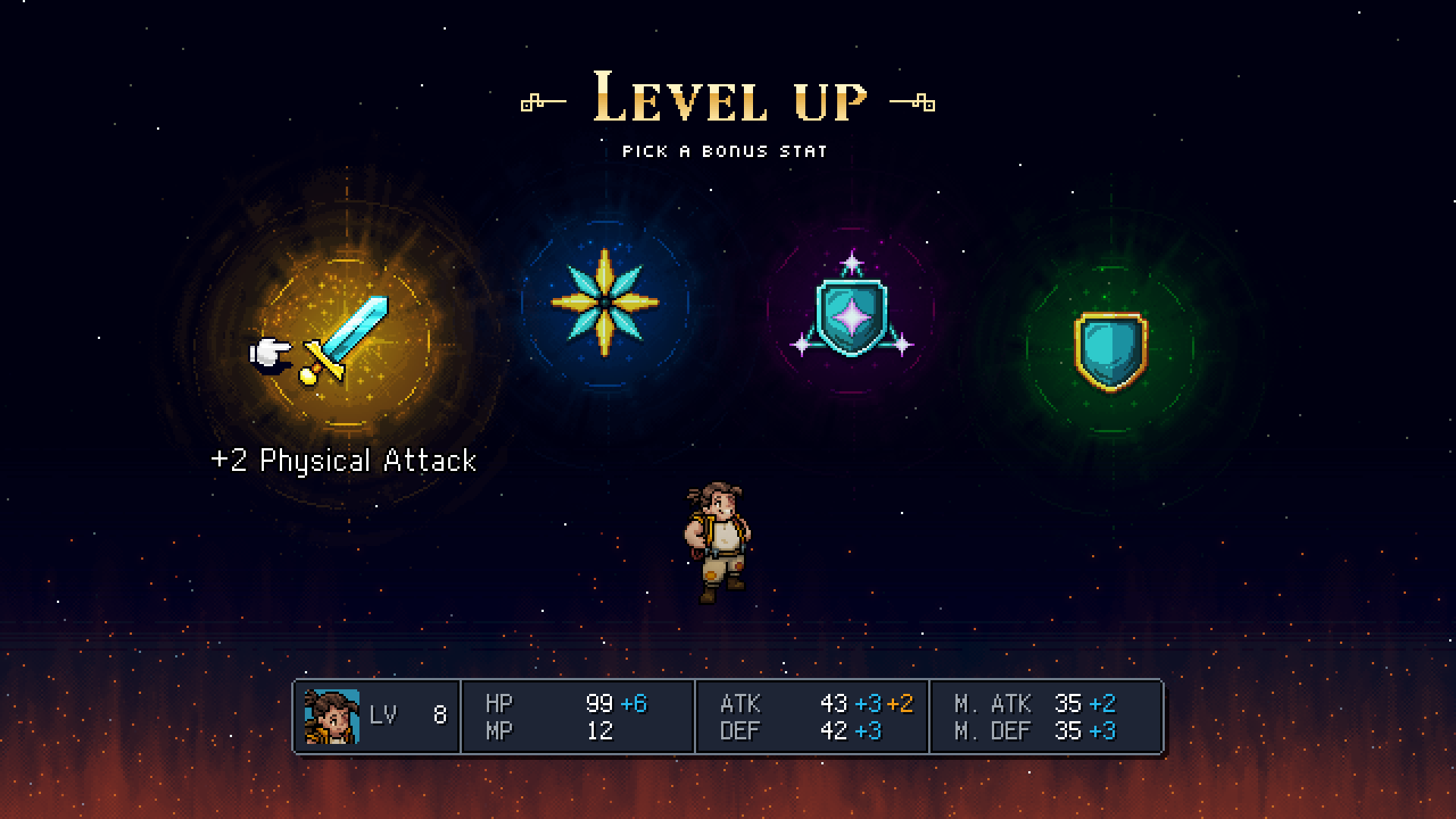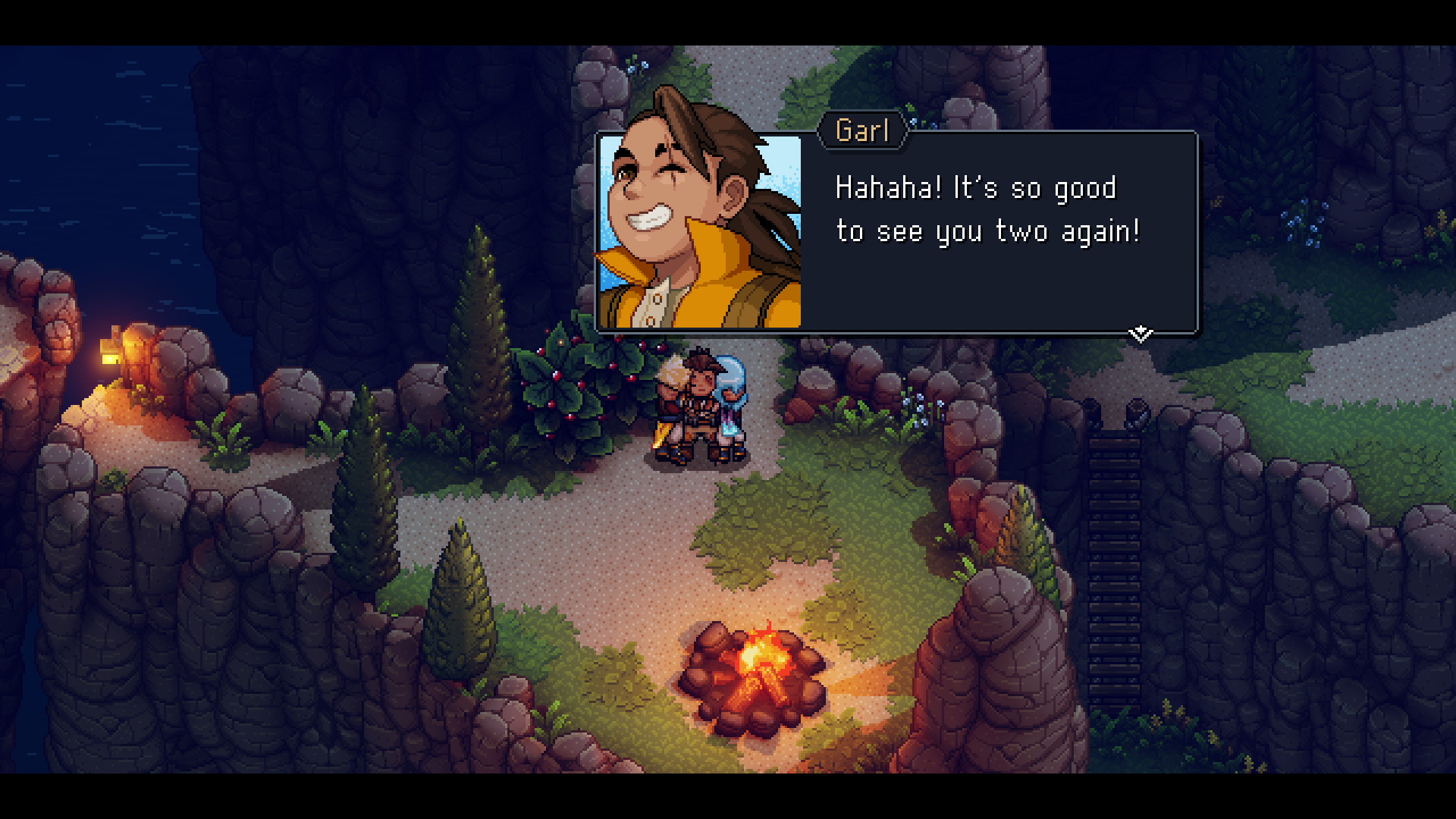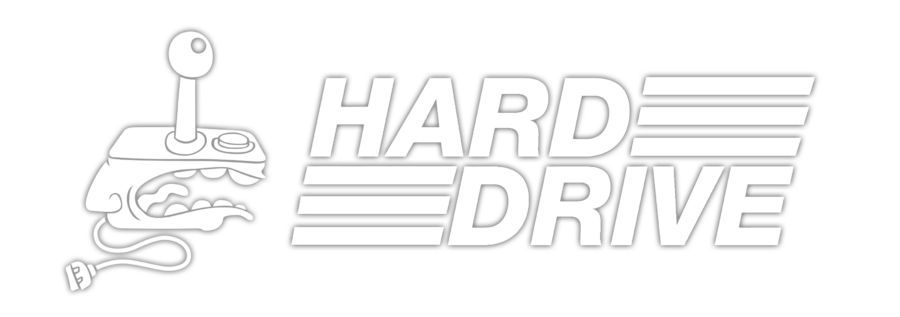New, good turn-based RPGs are in short supply in the modern gaming landscape. Some like Dragon Quest still carry the torch for AAA studios, but even the behemoth Final Fantasy has moved to a more action-oriented format, for better and for worse. On the bright side, though, there’s plenty of indies who have begun to carry the torch of the genre. I’m happy to say that Sea of Stars from Sabotage Studio stands among the titans of the genre.

Releasing on pretty much every major platform on August 29, Sea of Stars has been described as an homage to many SNES RPGs, including Chrono Trigger, Super Mario RPG, and Illusion of Gaia. Through both its gameplay and its presentation, the inspiration from these games is very evident, though this game makes the most of modern hardware with a few set pieces that are spectacles to behold.
Gorgeous backgrounds combine with pixel art that, in this reviewer’s opinion, looks far better than Square Enix’s HD-2D style. The animations on each character have loads of personality. Just look at some of these animations for Seraï, one of the playable characters. Seeing her jump in and out of her portals never really got old throughout my entire playthrough.
On that same note, the sound design is top notch. Of course, a soundtrack featuring Yasunori Mitsuda of Chrono Trigger & Xenoblade fame was going to have plenty of bangers (a select few of which you can listen to now). Plenty of songs on the soundtrack will have you humming along as you play. Most themes also have multiple variations depending on the time of day, with some more relaxed versions of themes playing at night.
In addition to the music, sound effects in the game are fantastic. Nearly every action you do in the game has some sort of auditory feedback, making every action satisfying to pull off. Hearing the sound of Garl bash something with his shield is particularly satisfying, especially when a perfectly timed hit leads to an additional one.

Yep, that’s right: Paper Mario-esque timing bonuses are one of the main attractions in the combat system of Sea of Stars. Despite this similarity, where the combat truly sings is where it goes down a different path than its inspirations. So many small annoyances that I have had with this genre I love are dealt with in interesting ways.
Are you commonly an item hoarder, holding onto your healing items just in case it’s more useful later? Sea of Stars caps your healing item capacity at 10 dishes of food, which are easily replaceable and scale quickly. Use it now and cook something to replace it at the next save point. Saving your MP to cast your powerful spells at the next boss fight? You generate MP with every connected standard attack: cast away! Random encounters, too, are traded for more scripted combat scenarios. If you’ve been annoyed by something in RPG combat, there’s a really good chance that this game does something to improve on it.

One shortcoming of the combat system is how the game handles equipment and level-ups. Every character has three accessory slots, a weapon, and armor to choose from. While accessories add interesting buffs that can make your character stronger, especially in the endgame, weapons and armor all end up feeling like “the same thing, but stronger.”
Leveling up has a similar issue. Each time you level up, you get to select a bonus stat to level up further, in addition to the standard stat increases. The bonus stat, though, is from a selection of four seemingly random stats. Because of this, it’s hard to invest in one or two stats to try and make a character a specialist in anything, which led to most characters’ only discerning elements being the skills at their disposal, instead of their stats behind the skills. Each one still felt fun to use; I just wish I could’ve taken it a step further.
What truly makes an RPG great, though, is a great story. Luckily, Sea of Stars delivers on this– mostly. The setup of the game’s world is immediately engrossing: Solstice Warriors are born on the winter or summer solstice, blessed by gods granting them the ability to use Lunar or Solar magic. These warriors train through childhood and are then tasked with taking down evil forces throughout the world.

The story itself was well-paced, and I never felt a mid-game slump that seems commonplace in RPGs. There’s always a looming threat, object to get, or friend to save that was always compelling or interesting enough to drive me forward. The colorful cast of characters is a big factor in this drive to keep going.
The game is filled with interesting side characters and party members to learn about. The biggest standout of the cast by far is Garl, who is an overwhelmingly positive force, a force that reminded me of Waymond Wang in 2022’s Everything Everywhere All at Once. I found myself constantly smiling as Garl would have encouraging words for his friends, or would talk his way out of (or into) loads of situations the party found themselves in.
On the other hand, two characters who fell unfortunately short for me were our two main heroes: Zale and Valere. As the two gain new powers and the story progresses, it feels like they never truly grow into their own distinct people. They’re heroes through and through, and rarely show many flaws that they need to confront. There were a lot of interesting questions to be asked about what it means to be a Solstice Warrior, but these two seem to just accept this duty as their life and move on. Perhaps this is due to them being interchangeable as playable characters, but when they’re surrounded by such a lovable and distinct cast, the two main characters falling a bit flat stands out as a sticking point.
The ending, too, left a bit to be desired. While the final boss fight is one that’s tough and satisfying, the story that follows seems like it leaves quite a few questions unanswered. Perhaps this is intentional to set up for a sequel; perhaps it links to the studio’s other game The Messenger, which I regretfully have not played. As it stands though, the ending just feels like there was more to be said.
Despite some small story & gameplay gripes, Sea of Stars is still an excellent journey worth taking for turn-based RPG fans, even in an incredibly stacked year. The overall story is great with loads of memorable side characters. The gameplay and combat are up there with the greats of the genre. Combine that with some top-notch presentation, and you’ve got a game that is absolutely worth your time. It plays great on a handheld like the Switch or Steam Deck, but it’s also launching on Xbox & PC Game Pass and PlayStation Plus Extra. If you’re even somewhat interested in the turn-based RPG genre, it’s absolutely worth your time before the upcoming torrent of September releases.
Steam code for review was provided by Sabotage Studios via Tinsley PR. Playtime was split between Steam Deck and desktop; it ran well and looked great on both!




